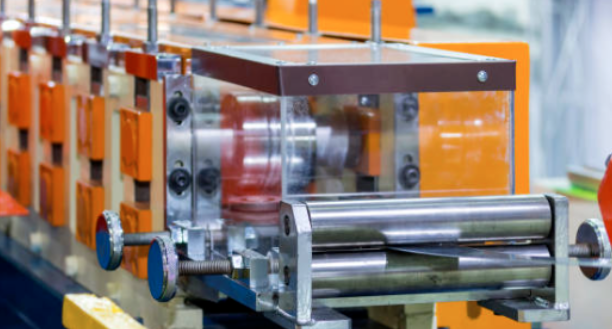
Posted on Monday, September 30, 2024
Precision is a critical aspect of roll forming, ensuring that each product manufactured meets exacting standards. In roll forming, metal sheets or coils are passed through a series of rollers to produce uniform shapes and profiles. Here's why precision in this process is so important:
Precision engineering in roll forming machines guarantees that each pass through the rollers produces an identical product, whether it's for a structural beam, metal roofing panel, or window frame. By maintaining tight tolerances, manufacturers can be confident that every piece meets design specifications. This level of consistency is essential for industries like construction, automotive, and renewable energy, where uniformity directly impacts performance and safety.
Precise control over each stage of the roll forming process reduces the chances of error, which in turn minimizes material waste. This not only lowers costs but also supports sustainability initiatives, as less scrap material needs to be recycled or discarded. In today's competitive market, reducing waste can provide a critical cost-saving advantage, especially when working with expensive metals like aluminum or stainless steel.
Precision in roll forming also leads to greater production efficiency. When machines are calibrated with exact parameters, downtime due to malfunctions or rework is significantly reduced. This allows manufacturers to meet tight deadlines while still delivering high-quality products. Additionally, automation in modern roll forming machines enhances precision by ensuring that even complex shapes are formed accurately in a single, continuous process, reducing the need for secondary operations.
Another benefit of precision in roll forming is the ability to create custom profiles with intricate details. Whether producing a unique gutter system or a specialized metal panel for an architectural project, roll forming machines can produce custom parts without sacrificing accuracy, ensuring that all components fit together seamlessly on the job site.
In summary, precision in roll forming is essential for delivering consistent, high-quality output, reducing material waste, improving production efficiency, and enabling customized solutions. As industries demand more complex and exacting metal components, precise engineering in roll forming machines will continue to play a crucial role in their success.
4o

Used Purlin Roll Forming Machines for Sale Worldwide
Posted on Sunday, January 25, 2026
Pre-Owned Roll Forming Machines for Purlin & Structural Steel Profiles

Used Roof Panel Roll Forming Machines for Sale Worldwide
Posted on Sunday, January 25, 2026
Pre-Owned Roll Forming Machines for Roofing Panel Production

Used Roll Forming Machines for Sale Worldwide
Posted on Tuesday, January 20, 2026
Pre-Owned Roll Forming Machines with Inspection, Verification & Global Support

Steel Coil Supply for Roll Forming Machines Worldwide
Posted on Tuesday, January 20, 2026
Reliable Steel Coil Supply for Roll Forming, Fabrication & Manufacturing Applications
Copyright 2026 © Machine Matcher.